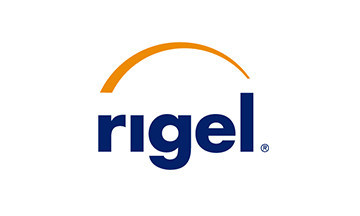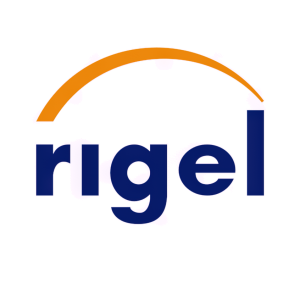Rigel Announces Second REZLIDHIA® (Olutasidenib) Publication in Blood Advances
- Review article examines the preclinical and clinical development, and the role of olutasidenib in the mIDH1 AML treatment landscape.
- Authors conclude, "The approval of olutasidenib is a critical addition to the mIDH1 AML treatment landscape with encouragingly durable responses."
"The compelling safety and efficacy results observed in REZLIDHIA trials to date, marked by encouragingly durable responses, represent an important advance for mIDH1 R/R AML patients and treating physicians," said Justin Watts, M.D., Lead Author and Associate Professor of Medicine, Division of Hematology, Chief, Leukemia Section at the University of Miami Health System. "These data are particularly supportive of the use of REZLIDHIA in mIDH1 R/R AML patients who have failed intensive chemotherapy or venetoclax plus HMA combination therapy. The results validate ongoing studies evaluating olutasidenib in frontline and R/R settings as a monotherapy and in combination with azacitidine with or without prior exposure to HMA or IDH1 inhibitor."
"We are pleased with the growing body of evidence and thought leader support for REZLIDHIA as a differentiated and potentially market-leading therapy for mIDH1 R/R AML patients," said Raul Rodriguez, Rigel's president and CEO. "We remain committed to delivering this important treatment option to mIDH1 R/R AML patients and look forward to data from the ongoing studies of REZLIDHIA in broader mIDH1 AML treatment settings."
Key points from the paper are summarized below:
- REZLIDHIA demonstrated highly durable remission rates, representing a critical addition to the mIDH1 AML treatment landscape
- The available data support the use of REZLIDHIA as monotherapy in R/R AML patients who have failed intensive chemotherapy or venetoclax plus HMA combination therapy
- The authors state that the choice of which IDH1 inhibitor to use first in these patients is not yet clear, although given the available data REZLIDHIA is recommended in venetoclax plus HMA failures
- Among the 12 patients with prior exposure to venetoclax, the ORR was
50% with four patients achieving CR/CRh (33% ;95% CI, 9.9–65.1) and two patients had CRi - Ongoing studies (NCT02719574) could clarify the role of REZLIDHIA in treatment naïve mIDH1 AML (including when given in combination with azacitidine) and in R/R mIDH1 AML with prior IDH1 inhibitor exposure. Further studies assessing maintenance, triplet therapy, and sequencing with venetoclax and azacitidine are being considered.
The paper, titled "Olutasidenib: from Bench to Bedside," was published online in Blood Advances and can be accessed here.
Rigel announced a peer-reviewed publication of data in Blood Advances in February 2023, which summarizes clinical results from the Phase 2 registrational trial of REZLIDHIA in patients with mIDH1 R/R AML.
On December 1, 2022, the
About AML
Acute myeloid leukemia (AML) is a rapidly progressing cancer of the blood and bone marrow that affects myeloid cells, which normally develop into various types of mature blood cells. AML occurs primarily in adults and accounts for about 1 percent of all adult cancers. The American Cancer Society estimates that in
Relapsed AML affects about half of all patients who, following treatment and remission, experience a return of leukemia cells in the bone marrow.3 Refractory AML, which affects between 10 and 40 percent of newly diagnosed patients, occurs when a patient fails to achieve remission even after intensive treatment.4 Quality of life declines for patients with each successive line of treatment for AML, and well-tolerated treatments in relapsed or refractory disease remain an unmet need.
About REZLIDHIA®
INDICATION
REZLIDHIA is indicated for the treatment of adult patients with relapsed or refractory acute myeloid leukemia (AML) with a susceptible isocitrate dehydrogenase-1 (IDH1) mutation as detected by an FDA-approved test.
IMPORTANT SAFETY INFORMATION
WARNING: DIFFERENTIATION SYNDROME |
WARNINGS AND PRECAUTIONS
Differentiation Syndrome
REZLIDHIA can cause differentiation syndrome. In the clinical trial of REZLIDHIA in patients with relapsed or refractory AML, differentiation syndrome occurred in
If differentiation syndrome is suspected, temporarily withhold REZLIDHIA and initiate systemic corticosteroids (e.g., dexamethasone 10 mg IV every 12 hours) for a minimum of 3 days and until resolution of signs and symptoms. If concomitant leukocytosis is observed, initiate treatment with hydroxyurea, as clinically indicated. Taper corticosteroids and hydroxyurea after resolution of symptoms. Differentiation syndrome may recur with premature discontinuation of corticosteroids and/or hydroxyurea treatment. Institute supportive measures and hemodynamic monitoring until improvement; withhold dose of REZLIDHIA and consider dose reduction based on recurrence.
Hepatotoxicity
REZLIDHIA can cause hepatotoxicity, presenting as increased alanine aminotransferase (ALT), increased aspartate aminotransferase (AST), increased blood alkaline phosphatase, and/or elevated bilirubin. Of 153 patients with relapsed or refractory AML who received REZLIDHIA, hepatotoxicity occurred in
Monitor patients frequently for clinical symptoms of hepatic dysfunction such as fatigue, anorexia, right upper abdominal discomfort, dark urine, or jaundice. Obtain baseline liver function tests prior to initiation of REZLIDHIA, at least once weekly for the first two months, once every other week for the third month, once in the fourth month, and once every other month for the duration of therapy. If hepatic dysfunction occurs, withhold, reduce, or permanently discontinue REZLIDHIA based on recurrence/severity.
ADVERSE REACTIONS
The most common (≥
DRUG INTERACTIONS
- Avoid concomitant use of REZLIDHIA with strong or moderate CYP3A inducers.
- Avoid concomitant use of REZLIDHIA with sensitive CYP3A substrates unless otherwise instructed in the substrates prescribing information. If concomitant use is unavoidable, monitor patients for loss of therapeutic effect of these drugs.
LACTATION
Advise women not to breastfeed during treatment with REZLIDHIA and for 2 weeks after the last dose.
GERIATRIC USE
No overall differences in effectiveness were observed between patients 65 years and older and younger patients. Compared to patients younger than 65 years of age, an increase in incidence of hepatotoxicity and hypertension was observed in patients ≥65 years of age.
HEPATIC IMPAIRMENT
In patients with mild or moderate hepatic impairment, closely monitor for increased probability of differentiation syndrome.
Click here for Full Prescribing Information, including Boxed WARNING.
To report side effects of prescription drugs to the FDA, visit www.fda.gov/medwatch or call 1-800-FDA-1088 (800-332-1088).
REZLIDHIA is a registered trademark of Rigel Pharmaceuticals, Inc.
About Rigel
Rigel Pharmaceuticals, Inc. (Nasdaq: RIGL) is a biotechnology company dedicated to discovering, developing and providing novel small molecule drugs that significantly improve the lives of patients with hematologic disorders, cancer, and rare immune diseases. Founded in 1996, Rigel is based in
- de Botton S, et al. Olutasidenib (FT-2102) induces durable complete remissions in patients with relapsed or refractory IDH1-mutated AML. Blood Advances. February 1, 2023.
doi: https://doi.org/10.1182/bloodadvances.2022009411 - The American Cancer Society. Key Statistics for Acute Myeloid Leukemia (AML). Revised January 12, 2023. Accessed Feb. 15, 2023: https://www.cancer.org/cancer/acute-myeloid-leukemia/about/key-statistics.html
- Leukaemia Care. Relapse in Acute Myeloid Leukaemia (AML). Version 3. Reviewed October 2021. Accessed Dec 2, 2021: https://media.leukaemiacare.org.uk/wp-content/uploads/Relapse-in-Acute-Myeloid-Leukaemia-AML-Web-Version.pdf
- Thol F, Schlenk RF, Heuser M, Ganser A. How I treat refractory and early relapsed acute myeloid leukemia. Blood (2015) 126 (3): 319-27. doi: https://doi.org/10.1182/blood-2014-10-551911
Rigel Forward Looking Statements
This press release contains forward-looking statements relating to, among other things, that olutasidenib may provide a meaningful benefit to people with relapsed or refractory acute myeloid leukemia, our ability to commercialize olutasidenib in the
Investors:
Rigel Pharmaceuticals, Inc.
650.624.1232
ir@rigel.com
Media:
David Rosen
Argot Partners
212.600.1902
david.rosen@argotpartners.com
![]() View original content to download multimedia:https://www.prnewswire.com/news-releases/rigel-announces-second-rezlidhia-olutasidenib-publication-in-blood-advances-301843134.html
View original content to download multimedia:https://www.prnewswire.com/news-releases/rigel-announces-second-rezlidhia-olutasidenib-publication-in-blood-advances-301843134.html
SOURCE Rigel Pharmaceuticals, Inc.








